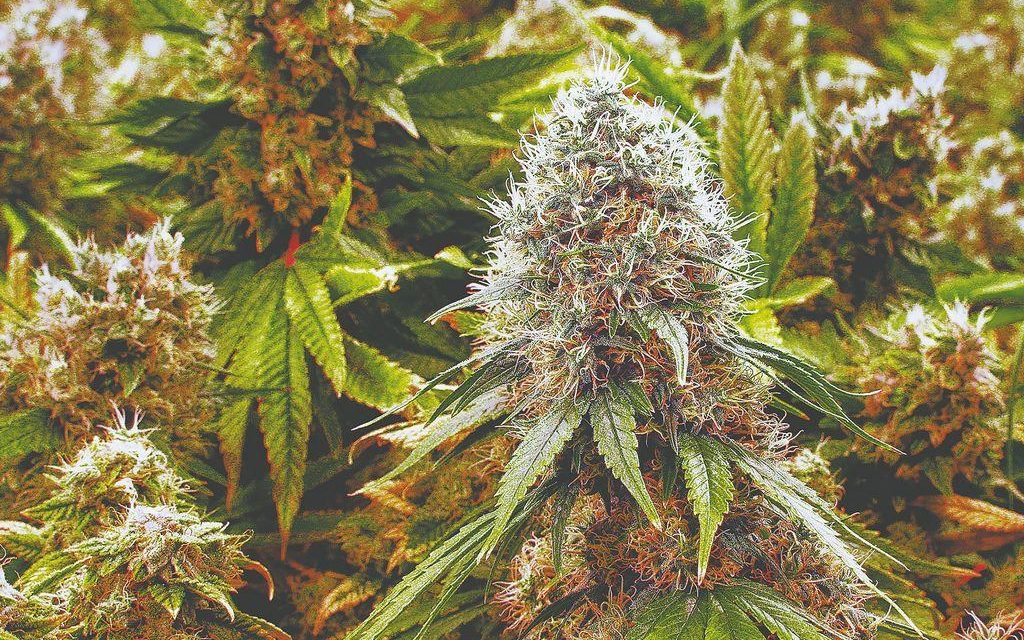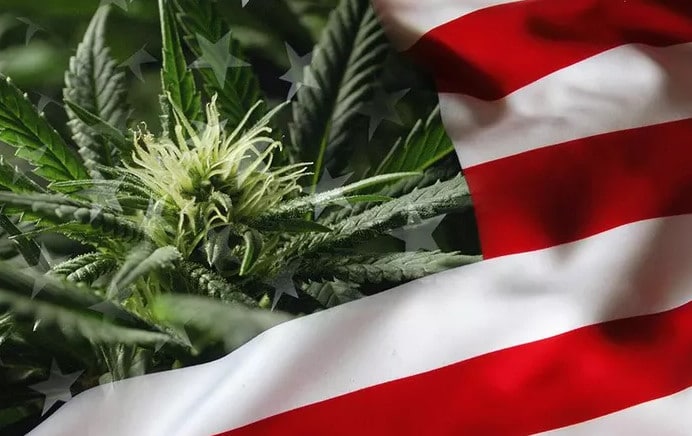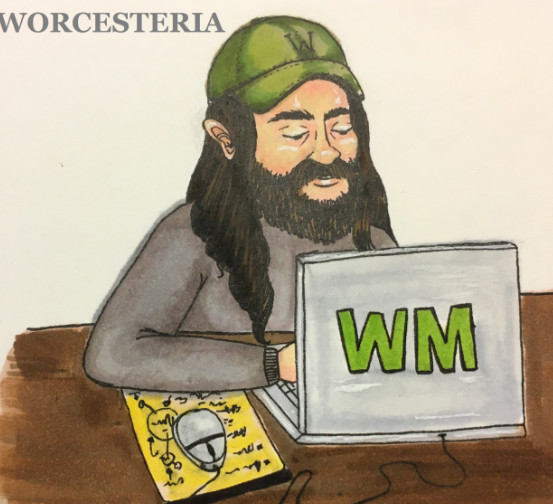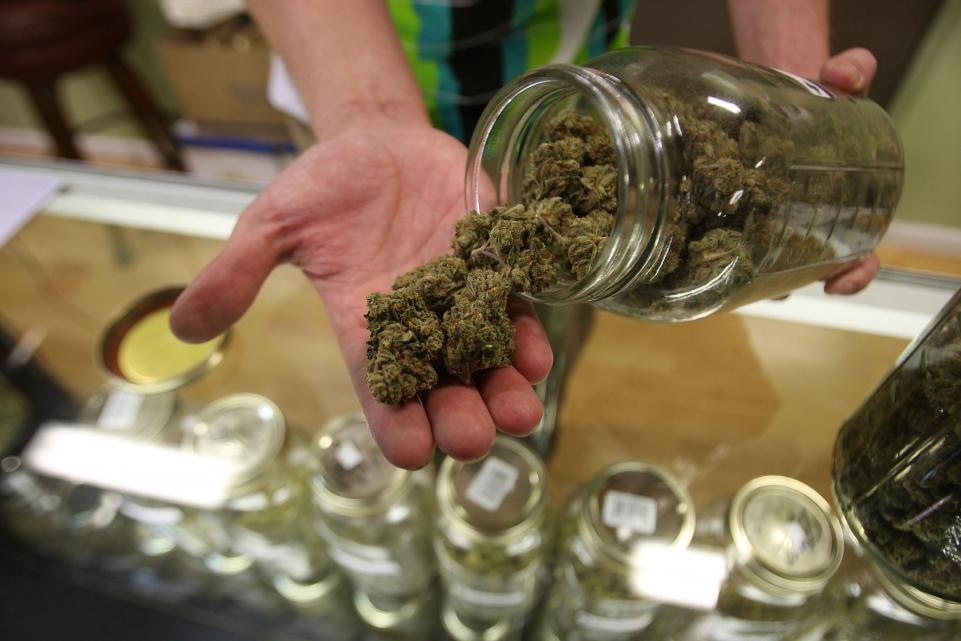Criminalized in 1911, decriminalized in 2008, and legalized in 2016, marijuana is now Massachusetts’ biggest, trickiest opportunity.
On Beacon Hill – though certainly not at the local level – the electoral and legislative wrangling is finished for the moment, and an even more consequential phase has begun: writing and enforcing the rules for this multi-billion-dollar game, and making the most of its potential.
Three ballot questions have made marijuana mainstream, but the questions are really just beginning, with Cannabis Control Commission Chairman Steven Hoffman cast as Answerer in Chief.
Who will profit? How much? What will the industry do if too many locations ban the sale of weed in their towns? How can regulators assist the industry to grow, yet insure public safety concerns are sufficiently addressed that residents, police and officials feel comfortable enough to encourage development? What should rule makers not allow? What should the state do with the influx of revenue? And how much will a black market compete with the legal suppliers?
This cheat sheet is not the place to explore all the ramifications of the coming of legal weed to Massachusetts – the State House News Forum is! But it hopefully will provide some useful context. The Massachusetts Marijuana Summit is Nov. 15 at the Massachusetts Continuing Legal Education center at 10 Winter Place in Downtown Crossing starting at 7:30 a.m.
The summit will feature will feature a leadoff talk by Hoffman followed by two panels, one focused on the key political and policy questions, and another on the theme of entrepreneurial challenges.
A Short Chronology
1989: First Freedom Rally in support of marijuana legalization is held in North Adams, moving to Boston Common in 1992 and growing into the second-largest pro-pot rally in the U.S. after Seattle’s Hempfest.
1990: MassCann, the state arm of the National Organization for Reform of Marijuana Laws, is founded.
1992: Gov. William Weld signs a bill into law legalizing the use of marijuana for glaucoma, cancer therapy and certain asthmatic disorders under a limited Department of Public Health research program. He also commutes the sentence of man sentenced to 30 days for treating himself for scleroderma with pot he grew himself.
1996: Legislature grants DPH the power to approve any Massachusetts patient to possess and use pot legally for relief of symptoms. But there’s a catch: there is no legal way to obtain marijuana in Massachusetts, even though DPH.
1999: The group gathering signatures for a 2000 ballot question decriminalizing marijuana is the only one to fall short of the necessary number to qualify, causing Sec. of State William Galvin to joke, “Marijuana just went up in smoke.” Several non-binding local questions decriminalizing recreational use and legalizing medicinal marijuana do win in 2000.
2002: Acting Gov. Jane Swift vetoes a budget amendment allowing judges to impose civil, not criminal, penalties for possession.
2003: For whatever reason, “Medical marijuana” displaces “medicinal marijuana” as the term of choice in most news coverage. But the state’s medical marijuana program is still moribund for lack of a legal source.
2005: Steven Tolman, Senate chairman of the Mental Health and Substance Abuse Committee, says the time has come to decriminalize marijuana.
2006: Mental Health and Substance Abuse sends a bill to the Legislature that would make Massachusetts the 12th state to decriminalize pot.
2007: A binding question decriminalizing marijuana garners enough support to appear on the 2008 ballot.
2008: The ballot question making possession of less than an ounce a civil infraction passes, 62.8 to 33.5 percent, over the objections of Gov. Deval Patrick and Attorney General Martha Coakley.
2009: Advocates for legalization argue before the Revenue Committee that that the state could collect millions in revenue annually if the marijuana trade were steered from the black market to legal channels. U.S. Justice Department issues memo discouraging federal prosecutors from charging individuals who use marijuana for medical reasons.
2011: With the Legislature having failed to legalize pot for medical use, advocates take the now-familiar trip to the ballot, placing a medical-marijuana bill before voters for 2012.
2012: The medical-marijuana question passes 63.3 percent to 36.7 percent, and the Department of Public Health begins drafting regulations to license individuals to buy and dispensaries to sell.
2013: While the medical-marijuana question received a “Yes” majority in every community except Lawrence and Bellingham, by September, 115 cities and towns have enacted temporary local prohibitions on dispensaries.
2014: Two years after the ballot question, protesters gather outside DPH offices to decry the fact that not a single dispensary has opened and medical marijuana still is not legally available in Massachusetts.
2015: The first dispensary finally opens in June, in Salem. Supporters of legalized recreational pot clear the signature-gathering hurdle for the 2016 ballot.
2016: Voters legalize recreational marijuana, 56.7 percent to 46.3. Almost immediately, the Legislature passes a bill delaying the start of retail sales by six months, until July 1, 2018. Possession of amounts under an ounce, and consumption in private, become legal at once.
2017: Attorney general issues ruling that local communities may not opt out of hosting medical marijuana dispensaries. Governor signs legislation changing the provisions of the voter-approved legalization law. Pot is taxed at 10.75 percent plus the 6.25 percent state sales tax, plus a 3 percent local option tax. Communities are given the chance to opt out of retail sales by vote of the local legislative body if they voted “No” on 2016′s Question 4, or by local referendum if they voted “Yes.” The law expands the Cannabis Control Commission from three to five members and takes it out of the purview of the state treasurer’s office, while the treasurer still is given power to appoint the chair. Medical marijuana regulation is scheduled to be taken out of the hands of the Dept. of Public Health and placed with the CCC. The CCC holds its first meeting Sept. 12; Shawn Collins, the treasurer’s expert on marijuana policy, wins the executive director’s job Oct. 19. A major impediment to the health of the nascent industry emerges, as 115 communities vote in temporary or permanent bans on recreational retail shops within their borders.
Other States
Massachusetts was the 18th state to legalize possession of marijuana for professionally-certified medical use. Medical use is legal in 29 states. Recreational use is legal in California, Washington State, Washington D.C., Oregon, Nevada, Colorado, Maine and Massachusetts.
Next Steps
March 15 is the deadline for the Cannabis Control Commission to issue regulations for licensing, sale and control of legal marijuana.
April 1 is the first day the CCC can accept license application from would-be commercial cultivators and sellers.
May 1 is the date by which testing protocols must be complete.
June 1 is the first date the CCC can issue recreational licenses, and those licenses permit sales 30 days after opening, so…
July 1 is the date retail sales are permissible, though it’s not certain any licenses will be issued by then.
The Market
The Mass. Department of Revenue estimates 2017 Mass. retail sales of between $375 million and $636 million, with about $1 billion in sales in fiscal 2020. Industry analysts New Frontier and ArcView Market Research have predicted about $1.7 billion in combined recreational and medical sales here in 2021. ArcView projects 17,400 full and part time jobs will be created growing, selling and promoting pot. The state projects state and local tax collections of approximately $240 million in fiscal 2021. Nationally, pot sales are generally projected at $7 billion to $8 billion in 2017, while the Brightfield Group just issued a report estimating the international market to swell to $31.4 billion globally in 2021. Canada is expected to legalize recreational pot next year, and European and Latin American countries are increasingly permitting medical marijuana.
The Industry
Among the major players in this enormous new sector:
Culivators
Retailers
Facilities developers and managers
Financial services providers
Medical providers
Testing laboratories
Marketers and advertisers
Lawyers and government-affairs professionals
Human-capital specialists
Medical Vs. Recreational
The number of medical seed-to-sale dispensaries is now up to 15 – far fewer than supporters of the ballot campaign for medical marijuana imagined would be approved by now. But about 100 more locations have been granted provisional registrations by the DPH, and some will likely make it to the final stage and open – though only 35 medical dispensaries can operate statewide under the 2013 law implementing the 2012 ballot question. All approved medical dispensaries can be converted to dual medical and recreational shops with the issuance of a license, and that’s widely expected to happen.
Patients are issued marijuana cards for eight specific debilitating diseases and a number of psychological or neurological conditions, as certified by their physicians. They may possess a 60-day supply, or up to 10 ounces, in their home.
Panelists
Keynote
Steven Hoffman, CCC Chair
Panel One
Stan Rosenberg, Mass. State Senate President: Sen. Rosenberg began his career as an aide to then-state Sen., later Congressman, John Olver. He was executive director of the state Democratic party from 1983-1985. He won election to the House in 1986, and the Senate in 1991, succeeding Olver. He was Senate Ways and Means chairman from 1996 to 1999, named Majority Leader in 2013, and elected President of the Senate in 2015.
Kamani Jefferson, President, Massachusetts Recreational Consumer Council: Mr. Jefferson combined a talent for sales, experience in making edibles, and a devotion to the Yes on 4 cause into an advocacy career. He founded the Massachusetts Recreational Consumer Council to continue to pursue the Yes on 4′s objectives of a safe and thriving marijuana industry that improves the quality of life in communities hurt disproportionately by the illegal drug trade.
Jim Smith, founding partner, Smith, Costello and Crawford: Rep. Smith was state representative from Lynn for eight years. He was one of the original sponsors of decriminalization, in the 1970s. His recent involvement on the marijuana issue centers on assisting would-be medical marijuana providers to negotiate the political and regulatory landscape of Massachusetts government.
Daniel Smith, general counsel, Sen. Patricia Jehlen: General counsels are the people in the offices of lawmakers and policy officials expected to know every last detail and ramification of the laws governing their bosses’ area of authority. As Sen. Jehlen’s general counsel, Mr. Smith was by her side when the Marijuana Policy Committee wrote the law at the centerpiece of today’s forum.
Panel Two
Dr. Karen Munkacy, CEO of Garden Remedies in Newton, a medical dispensary: Ms. Munkacy comes to her current position via her battle with breast cancer, which taught her the value of marijuana in caregiving. As both an entrepreneur and a doctor with medical-school teaching experience, she’s uniquely situated to discuss the present and future of medical marijuana.
Laura Davis, director of compliance, Good Chemistry: Ms. Davis has done much of her work overseeing compliance with health, safety and environmental regulation for companies building spacecraft and space telescopes. For instance, she oversaw the handing of beryllium in the construction of the James Webb space scope, the most powerful ever built. She’s transferred her expertise to compliance in the marijuana industry, which must observe regulations from fire safety to solvent handing to appropriate disposal of degraded product.
Tim Keogh, President and CEO, Americann Massachusetts: Mr. Keough was selling and developing Florida real estate when his friend passed away from stomach cancer. Like numerous other industry leaders, his experience compelled him to join the new industry, and he became a lobbyist for, and cultivator of, medical marijuana in Rhode Island. He then cofounded Americann, which is spearheading the construction of the largest medical cultivation facility in the country, in Freetown.
Jim Borghesani (moderator), Marijuana Policy Project: Mr. Borghesani became the most recognizable public face of legal-weed advocacy during the Yes on 4 campaign, and has evolved his role into making the case for acceptance of the industry at the local level and its maximum encouragement as policy and regulations are developed.
The Regulators
Legislative wrangling over how to oversee the expanded marijuana industry seemed neverending, but finally did wrap up in mid-July with approval of a law creating the five-member Cannabis Control Commission, appointed by the governor, treasurer and attorney general. Members of the CCC, which began meeting in September:
Steven Hoffman, Chairman: Mr. Hoffman has an extensive business-management background; this is his first involvement in the marijuana industry.
Jennifer Flanagan of Leominster was state Senator when Gov. Charlie Baker named her as his pick for the CCC. She specialized on mental-health and substance-abuse issues in the Legislature.
Britte McBride of Lynnfield was Attorney General Maura Healey’s pick and possesses an extensive background in public safety and law enforcement policy. She was assistant attorney general and deputy chief of staff under former AG Martha Coakley, and headed her policy and government division, advocating for the AG’s legislative agenda. Prior to that, she served as legal counsel at the Department of Public Safety. After Coakley left office, McBride became deputy legal counsel of the Mass. State Senate.
Kay Doyle is the primary legal counsel for the Department of Public Health’s Medical Marijuana program, and handled marijuana regulation as part of her portfolio during her 17 years at Kopelman and Paige, a firm specializing in Massachusetts municipal law.
Shaleen Title of Malden founded THC Staffing Group, an industry recruiter that focuses on diversity and inclusion in hiring. She co-authored Question 4. Like many other advocates, she began her activism arguing for medical marijuana, then turned her attention to legalization.
The Local Level
As of mid November, 35 communities had adopted permanent bans on retail shops and 89 had adopted temporary moratoriums on retail sales. The resistance to sales outlets is developing as a major obstacle to the development of a vigorous industry that can successfully subsume the black market. The number of communities that have blocked sales, temporarily or permanently, exceeds the number of places that voted “No” on Question 4 – 87.
credit:newton.wickedlocal.com













